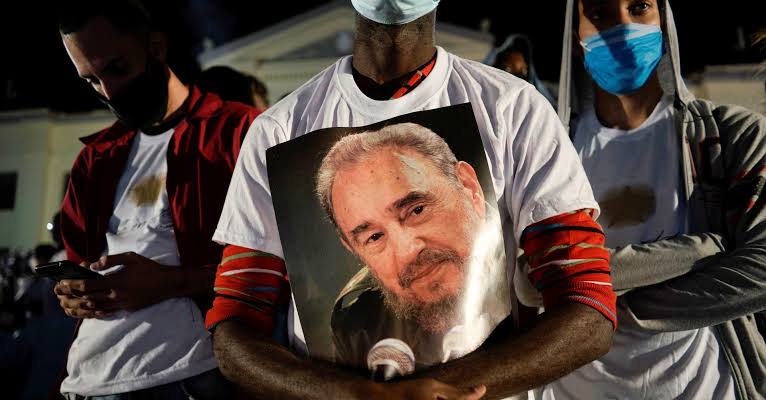
Breaking News: Cuba Initiates London Court Battle Over Unpaid Castro-Era Debt
In a significant development that underscores the ongoing financial and diplomatic challenges facing Cuba, the Caribbean nation has formally initiated a legal battle in a London court over an unresolved debt dating back to the Castro era. This case marks a rare and high-profile instance of Cuba engaging in international litigation related to its historical financial obligations, highlighting the complexities of its economic situation and the lingering impacts of its Communist regime’s policies.
Background of the Debt
The debt in question reportedly originates from financial transactions and loans made during Fidel Castro’s leadership, spanning the 1960s through the 1980s. During that era, Cuba’s economy faced numerous sanctions, embargoes, and restrictions, many of which complicated its international financial dealings. Some creditors claim they provided loans, credit lines, or financial services to the Cuban government or state enterprises, which, according to these claims, remain unpaid or partially settled decades later.
Details about the specific amount involved are still emerging, but sources close to the case suggest that the debt could amount to hundreds of millions of dollars. The creditors involved include several European financial institutions, investment funds, and private investors who allege that Cuba has failed to honor its contractual obligations, despite attempts at negotiations over the years.
Legal Proceedings in London
The legal action was filed in the High Court of Justice in London, a jurisdiction often chosen by creditors due to its well-established financial and commercial law framework, as well as the presence of international arbitration and enforcement mechanisms. The case is reportedly being pursued by a consortium of creditors seeking to recover their funds through the enforcement of judgments or arbitration awards obtained in Cuba or elsewhere.
This move is significant because it represents one of the first major legal confrontations over Castro-era debts in a Western court, signaling a shift in how Cuba’s financial history is being addressed on the international stage. The court proceedings could have broader implications for Cuba’s future dealings with international lenders and investors, especially as the country seeks to revive its economy amid ongoing sanctions and political isolation.
Cuba’s Response and Position
Officially, the Cuban government has not issued a detailed public statement regarding the lawsuit. However, sources within Cuba’s Ministry of Finance and Foreign Trade suggest that the country views the legal actions as part of a broader pattern of economic pressure and diplomatic hostility. Cuba maintains that many of these debts were either politically motivated or were the result of illegitimate claims, especially given the complex geopolitical context of the Cold War era.
Cuba’s stance emphasizes that the country has long-standing disputes over what it considers unjust claims made by foreign entities, often accusing creditors of exploiting its fragile economy or engaging in opportunistic practices. The Cuban government has also pointed out that the country has prioritized social programs, healthcare, and education, often at the expense of settling foreign debts, which it argues should be viewed within the larger historical and political framework.
International Implications
The London court battle has attracted attention from international legal experts, financial analysts, and diplomatic circles. It underscores the ongoing struggles Cuba faces in balancing its ideological commitments with the realities of modern international finance. The case also raises questions about the enforceability of historical debts, especially those originating from a revolutionary government that radically changed the country’s political and economic landscape.
Furthermore, the case could set a precedent for other nations with unresolved historical debts seeking legal recourse in Western jurisdictions. It might also influence Cuba’s future negotiations with international lenders, potentially pushing the government toward more transparent and formalized debt settlement processes.
Impact on Cuba’s Economy and Diplomacy
This legal confrontation comes at a critical juncture for Cuba. The country is actively striving to attract foreign investment, improve economic conditions, and normalize relations with Western nations, especially after recent diplomatic thawing with the United States and the European Union. However, unresolved financial disputes threaten to hamper these efforts, creating an atmosphere of uncertainty for potential investors and partners.
Moreover, the case could have diplomatic repercussions, as creditor nations and institutions may leverage the proceedings to push for greater transparency or to negotiate settlement terms. For Cuba, resolving these debts could be a step toward rebuilding trust with international financial institutions and enhancing its economic stability.
Legal Experts’ Perspectives
Legal analysts note that the case hinges on complex issues of sovereignty, contractual obligations, and historical claims. Some experts argue that international law recognizes the enforceability of certain debts, provided they are backed by valid contracts and proper legal procedures. Others suggest that the age of these claims, coupled with the political circumstances of the Castro era, could complicate the court’s ability to enforce any judgments.
Additionally, there are questions about whether Cuba’s government will recognize or comply with any potential rulings, given its history of rejecting external financial pressures and asserting sovereignty over its economic affairs. Enforcement of any judgments may require diplomatic negotiations or additional legal steps in other jurisdictions.
Broader Context
Cuba’s decision to pursue legal action in London reflects broader themes of post-revolutionary economic struggles, the legacy of Cold War-era conflicts, and the evolving landscape of international finance. While Cuba has made some strides toward economic reform and opening up to foreign investment, unresolved debts from decades past continue to cast a shadow over its financial credibility.
The case also highlights the increasing role of global courts and arbitration in resolving historic financial disputes, especially for nations with turbulent histories. As more countries seek justice or restitution for old claims, the international legal system becomes an arena where economic history, politics, and law intersect.
Conclusion
The initiation of a London court battle by Cuba over Castro-era debt marks a pivotal moment in the country’s ongoing quest to resolve its financial legacies and redefine its international economic relations. While the case remains in its early stages, its outcomes could influence Cuba’s economic trajectory, its diplomatic relations, and the broader landscape of international debt resolution.
As the proceedings unfold, global observers will be watching closely to see how justice is administered in this historic dispute, and what it means for Cuba’s future in the global financial system. Ultimately, this legal confrontation underscores the enduring impact of historical debts and the complex interplay between politics, law, and economics on the world stage.







